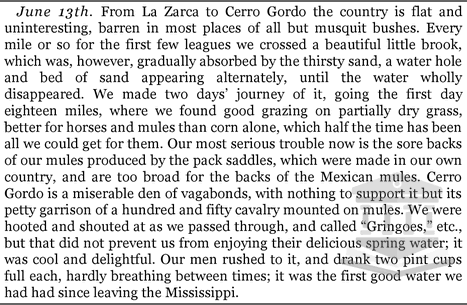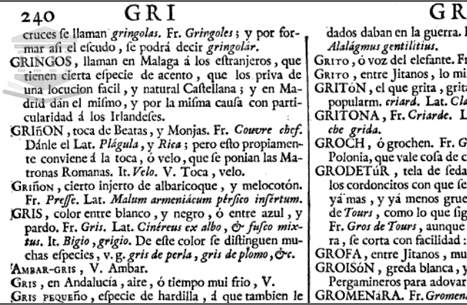
Documented in 1787, in the Second Volume of the Castilian Dictionary of the Spanish philologist Esteban de Terreros y Pandos (1707-1782), applying to foreigners who do not know how to express themselves correctly in the language of the locals, using as reference the cities of Malaga and Madrid. Likewise, it is presented as a linguistic phonetic phenomenon about the word seen in Spanish language Griego (translated to English as Greek, in its adjective sense), whose origin is reflected in the Latin graecus, from the Greek graikós, highlighting the Latin proverb “Graecum esta, non potest legi” (meaning “It is in Greek and cannot be read”), as the legendary philologist Joan Corominas (1905-1997) once stated.
However, in contrast, the word is strongly established as a negative adjective to describe Americans, recognized by English dictionaries in view of the geopolitical position from the nineteenth century, in the context of the war with Mexico between 1846 and 1848, emerging a set of possibilities around conjugations linked to the derogatory expression “go home”, or Green Go Home, in connection to General Thomas Green (1814-1864), who had a significant participation in the conflict with Mexico, as well as in association with the War Plan Green and Green Go, and while in pursuit of the layout and execution of this operation, the Mexicans would emphatically respond gringo. In 1849, the documentation of the American John Woodhouse Audubon is observed, who emphasizes in his work Audubon’s Western Journal 1849-1850, that people yelled at them gringoes, as Audubon heared and registered on his papers, upon their arrival to Cerro Gordo. The current names of San Francisco, San Diego, Las Vegas, Arizona, and California… are not just a coincidence.
The RAE (Royal Spanish Academy) added this term to its records in 1869, associating it with Griego (Greek), in the sense that a person could not express himself because of the evident language barrier, however, today it is listed as a word of unknown origin. In turn, this term is extended to foreigners in general who are recognized as such through their native language.
Gringoes expression registration on Audubon´s Western Journal 1849-1850

Description on Castilian Dictionary, Second Volume, 1787
